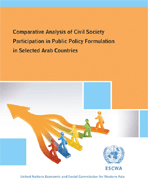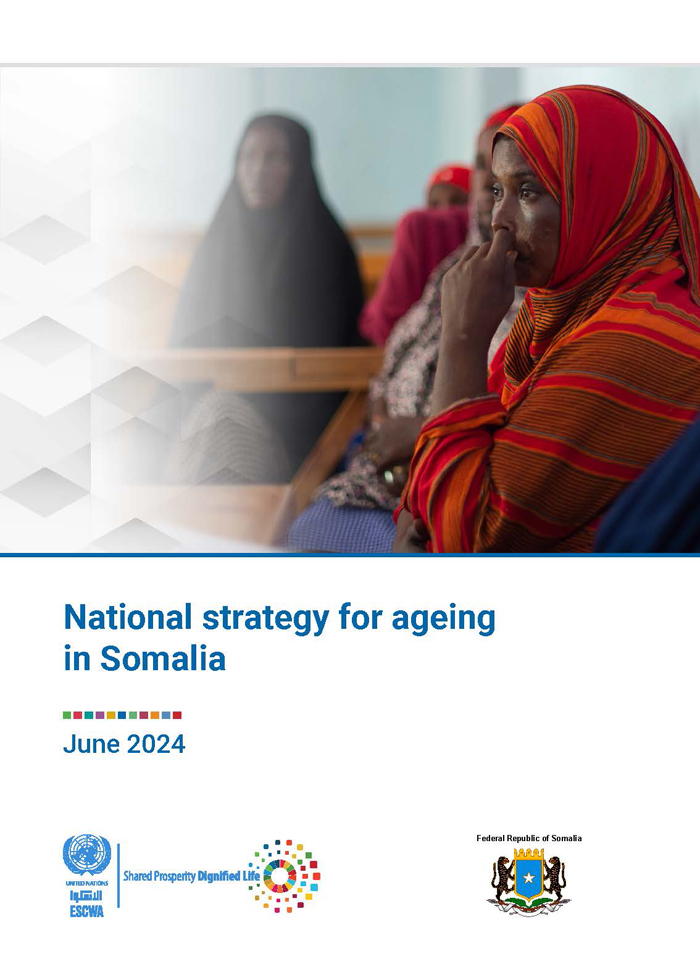
ESCWA Publication: E/ESCWA/SDD/2010/1
Country: Arab region, Hashemite Kingdom of Jordan, Lebanese Republic, State of Palestine, Republic of Yemen
Publication Type: Reports & studies
Cluster: 2030 Agenda and SDG Coordination
Focus Area: Governance & enabling environment, Inclusive development
Initiatives: Innovation policies
SDGs: Goal 11: Sustainable Cities and Communities
Keywords: Arab countries, Civil society, Community participation, Comparative analysis, Government policy, Popular participation, Community participation, Policy making, Social policy
Comparative Analysis of Civil Society Participation in Public Policy Formulation in Selected Arab Countries
January 2011
The comparative analysis was based on case studies in four ESCWA member countries, namely Jordan, Lebanon, Palestine and Yemen. The case studies covered the activities undertaken by civil society organizations and their working patterns in organizing advocacy campaigns and demand-driven protests, and in achieving concrete results in influencing public policy, with the aim of analysing their capacity to participate in public policy and in the policymaking process. The analysis concludes that civil society organizations need to focus on building their institutional capacity, enhancing their knowledge tools, improving their competencies in conducting negotiations and finding alternatives, and also need to move forward from monitoring and analysis to demand-driven action and pressure for advancement and change.
Related content
Governance & enabling environment
, Inclusive development
,
The comparative analysis was based on case studies in four ESCWA member countries, namely Jordan, Lebanon, Palestine and Yemen. The case studies covered the activities undertaken by civil society organizations and their working patterns in organizing advocacy campaigns and demand-driven protests, and in achieving concrete results in influencing public policy, with the aim of analysing their capacity to participate in public policy and in the policymaking process. The analysis concludes that civil society organizations need to focus on building their institutional capacity, enhancing their knowledge tools, improving their competencies in conducting negotiations and finding alternatives, and also need to move forward from monitoring and analysis to demand-driven action and pressure for advancement and change.



